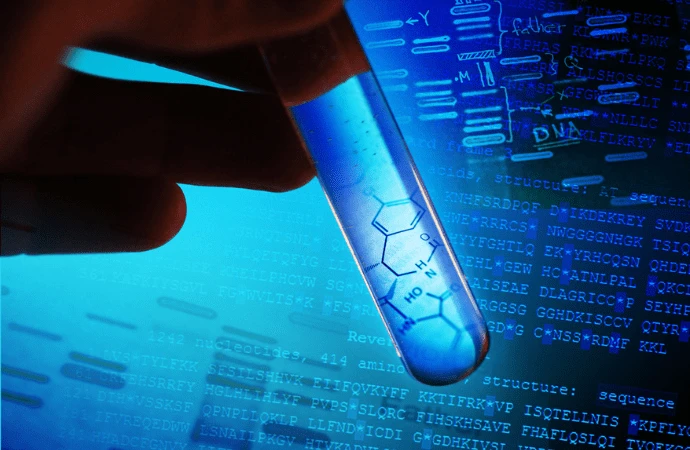Drug discovery, a costly and time-consuming process, faces challenges even with advanced technologies, especially for small molecules which take years to discover. AI offers promise by streamlining processes and scaling exploration. Techniques like knowledge graphs, generative AI, and AI-powered structure prediction have been applied successfully. Over the past decade, AI has substantially increased the number of discovered drug molecules, accelerating timelines. Major pharmaceutical companies have embraced AI in R&D, often collaborating with AI-native Biotechs. Despite progress, concerns persist regarding the quality of AI-discovered molecules, particularly regarding safety and efficacy in clinical trials. Preliminary analysis of the industry-wide pipeline suggests positive trends, but further confirmation is needed. Researchers published a review in Drug Discovery Today to provide an early glimpse of the exciting clinical potential of AI-discovered molecules.
Analysis of AI-discovered molecules in clinical trials
The study delved into the clinical trial pipelines of AI-native Biotech companies, which were considered indicative of the broader industry trends. The methodology involved categorising the molecules based on the primary method of their discovery using AI, such as identifying AI-discovered drug targets, small molecules, biologics, vaccines, or repurposed molecules. This categorisation aimed to investigate whether the mode-of-discovery influenced the clinical success rates.
Over the period since 2015, a total of 75 AI-discovered molecules had entered clinical trials, with a notable exponential growth trend observed. The growth rate exceeded 60% year-over-year, indicating a substantial increase in the integration of AI technologies into the drug development process. Among the therapeutic areas, oncology emerged as particularly prominent, constituting approximately half of the AI-discovered molecules in Phase I and Phase II trials.
The analysis also revealed a diversification in the modes of discovery of AI-generated molecules. Before 2020, AI-repurposed molecules dominated the clinical pipeline, but their representation plateaued afterwards, comprising around 15% of the cross-industry clinical pipeline by 2023. In contrast, other modes of discovery, such as AI-discovered small molecules, vaccines, antibodies, and molecules with AI-discovered targets, experienced an acceleration.
In terms of clinical trial outcomes, a preliminary analysis indicated promising success rates. By December 2023, 24 AI-discovered molecules had completed Phase I trials, with 21 of them deemed successful, suggesting a success rate ranging between 80% and 90%. This rate notably surpassed historical industry averages, typically ranging from approximately 40% to 55-65%. When examining Phase II trials, 10 AI-discovered molecules had concluded, with 4 demonstrating success, aligning with historical industry norms of 30-40% success rates in this phase.
However, the analysis acknowledged several caveats. Firstly, the sample size was relatively small, especially regarding clinical success rates, and it was anticipated that these figures might change significantly as more data becomes available in subsequent years. Additionally, the study focused solely on molecules originating from AI-native Biotech companies, potentially excluding AI-discovered molecules from larger pharmaceutical companies. Lastly, the categorisation of molecules was not mutually exclusive, leading to complexities in the analysis.
Implications for AI-powered drug discovery
The analysis highlights that AI-derived molecules exhibit a notable success rate of 80–90% in Phase I trials, surpassing historical averages. Several factors could contribute to this success, including the pursuit of well-validated biological targets and pathways, as well as the potential for AI algorithms to effectively optimise novel molecule series. Additionally, AI algorithms may excel in designing or selecting drug-like molecules with optimised profiles, leading to fewer dropouts in Phase I. Notably, Phase I failures often stemmed from business decisions rather than technical shortcomings.
In Phase II trials, AI-discovered molecules demonstrated a success rate of approximately 40%, aligning with industry norms. However, challenges persist in achieving clinical efficacy, indicating room for improvement. Notably, several Phase II discontinuations were attributed to non-technical factors such as shifts in business priorities or operational challenges, highlighting the complex landscape of drug development beyond scientific considerations. Economic and regulatory factors may also influence portfolio decisions in Biotech companies, underscoring the multifaceted nature of drug development challenges.
The Way Forward and Future Outlook
The analysis offers an initial glimpse into the potential of AI-discovered molecules in clinical trials, potentially foreshadowing the future of AI-powered R&D. By extrapolating observed success rates in Phase I and II trials and combining them with historical Phase III success rates, a notable increase in the overall probability of a molecule succeeding across all clinical phases emerges. This doubling of pharmaceutical R&D productivity could lead to significant benefits, such as achieving the same output with fewer resources or launching more new drugs within existing resources.
Moreover, there is optimism that AI techniques could further enhance clinical performance, particularly in Phase II and III trials. Ongoing investments in understanding disease drivers, identifying and validating drug targets, and leveraging advanced technologies like OMICs data, reverse translation, patient-derived models, and large language models are expected to bridge the gap between molecule design and clinical efficacy, potentially improving clinical trial success rates beyond historical averages.
The ultimate promise of AI in drug discovery lies in delivering more innovative medicines to patients faster, more effectively, and at lower costs. While the impacts of AI techniques have already been observed in preclinical workflows, the findings suggest that these benefits are beginning to translate into clinical trials as well. Despite statistical considerations, the results offer an intriguing glimpse into the future of R&D. As more clinical data for AI-discovered molecules become available in the coming years, it will be fascinating to observe how AI techniques continue influencing R&D productivity overall.
Source: Drug Discovery Today
Image Credit: iStock






